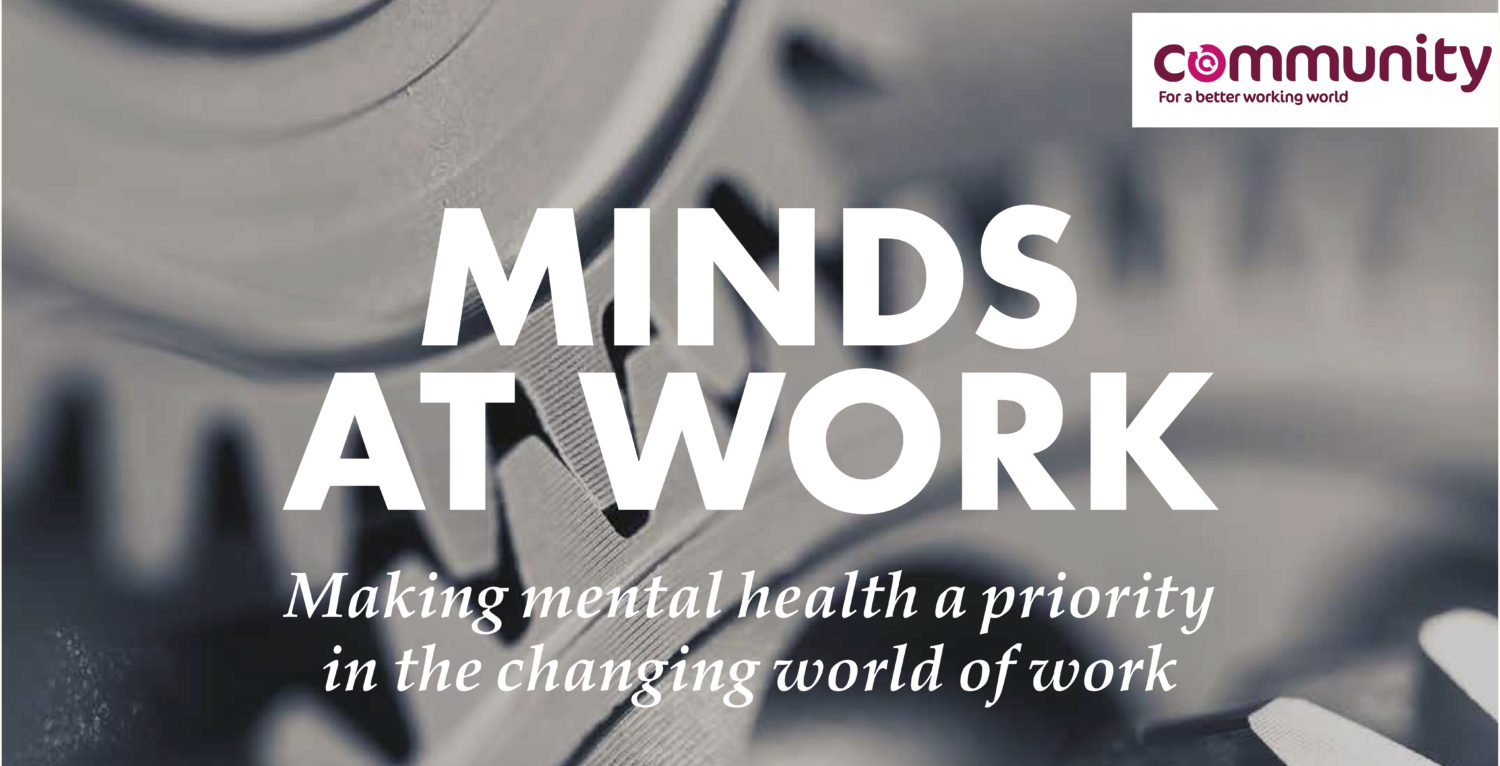The transformation of work must support good mental health – Fabian Society report
Job insecurity, prejudice and ignorance are driving Britain’s workplace mental health crisis, according to a new report from the Fabian Society.
Minds at Work reveals that Britain’s rapidly changing labour market is creating new risks for mental health. The report finds a steep increase in the number of self-employed workers with a mental illness. Over five years the number has almost doubled, from 105,000 in 2012 to 203,000 in 2017. This comes at a time when 1 in 3 British workers will experience a mental health illness each year.
The report is published by the Changing Work Centre, a joint research initiative from Community union and the Fabian Society. It brings together leading figures from the charity sector, academia and politics including Luciana Berger MP (president, Labour Campaign for Mental Health), Barbara Keeley MP (shadow minister for mental health and social care), Roy Rickhuss (general secretary, Community trade union), Paul Farmer, (chief executive, Mind), and a foreword by Alistair Campbell to address Britain’s growing workplace mental health crisis.
The report calls for an urgent rethink of attitudes towards mental health as the world of work continues to transform. Key recommendations include:
- Reforming statutory sick pay to make it more flexible, more generous and available to workers from day one of their employment.
- Creating a new collective insurance scheme to help protect the incomes of self-employed workers if they need to take time off work.
- Alternative management approaches which focus on the value and potential of each individual, rather than the cost of their mental illness.
- Training managers in equality law and their responsibilities to employees as well as ‘soft’ management skills.
- Government, trade unions and employers to work together to make workplaces accessible.
Highlighted in the report:
- 83% of staff with hiring responsibilities worry those with severe mental health illness ‘wouldn’t be able to cope with the demands of the job’.
- Only 43% of people with mental health issues are in employment compared to 74% of the population.
- 54% of managers say they would not know how to support someone with a severe mental health condition at work.
- 4m working days were lost because of mental ill-health in 2017/18.
- Workers with mental health problems contribute around £226bn a year to the economy.
Roy Rickhuss, general secretary, Community, said:
“Community have helped thousands of workers get the support they need with their mental health. As part of our priority campaign on mental health, we’ve developed mental health policies, trained our reps in mental health first aid and developed a mental health charter for our employers. Minds at Work is an important collection which explores the critical role of trade unions in addressing mental ill-health and providing the right support in the workplace.”
Gillian Connor, head of policy partnerships at Rethink Mental Illness and Mental Health UK, said:
“Workplaces reflect societal attitudes. Companies often trumpet their disability-friendly approach but often are not explicit about their support for less visible disability. The onus must be on companies to be inclusive in their approach and to make it clear that mental health is as important as physical health.”
Josh Abey, report editor and researcher at the Fabian Society, said:
“Changes in the world of work risk escalating our workplace mental health crisis. Whilst we’ve seen some progress in addressing the stigma around mental ill health, it is time employers, politicians and trade unions took the issue as a whole more seriously. Minds at Work offers a practical way forward.”
—ENDS–
NOTES
- Contact: Rabyah Khan, media and communications manager at the Fabian Society
0207 227 4906 | 07888861096 | khan@fabians.org.uk - Minds at Work is available here.
- Minds at Work has been published by the Changing Work Centre, a joint Community union and Fabian Society initiative.
- This report represents not the collective views of the organisations involved but only the views of the individual authors.
- Josh Abey, report editor and Fabian Society researcher, and Andrew Harrop, Fabian Society general secretary, are available for interview.
- The full list of contributors to this report is: Josh Abey, Luciana Berger MP, Jed Boardman, Gillian Connor, Kate Dearden, Gill Dix, Paul Farmer, Sally Anne Gross, Barbara Keeley MP, Roy Rickhuss, Chris O’Sullivan, Ruth Yeoman.
- The Fabian Society is Britain’s oldest political think tank. Founded in 1884, the Society is at the forefront of developing political ideas and public policy on the left. The society is alone among think tanks in being a democratically-constituted membership organisation, with over 7,000 members. It is constitutionally affiliated to the Labour party.
- Community is a modern trade union with over a hundred years’ experience standing up for working people.
